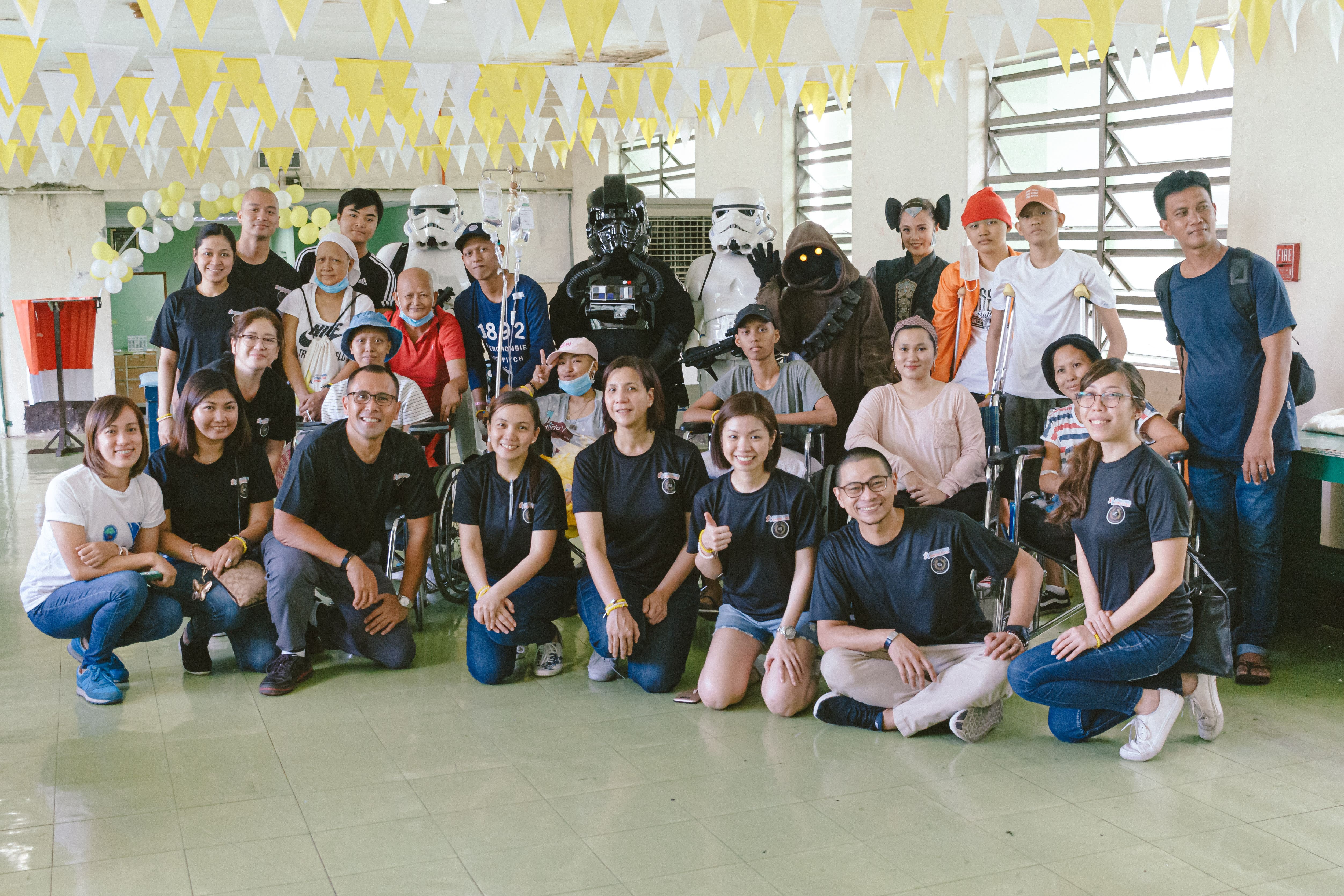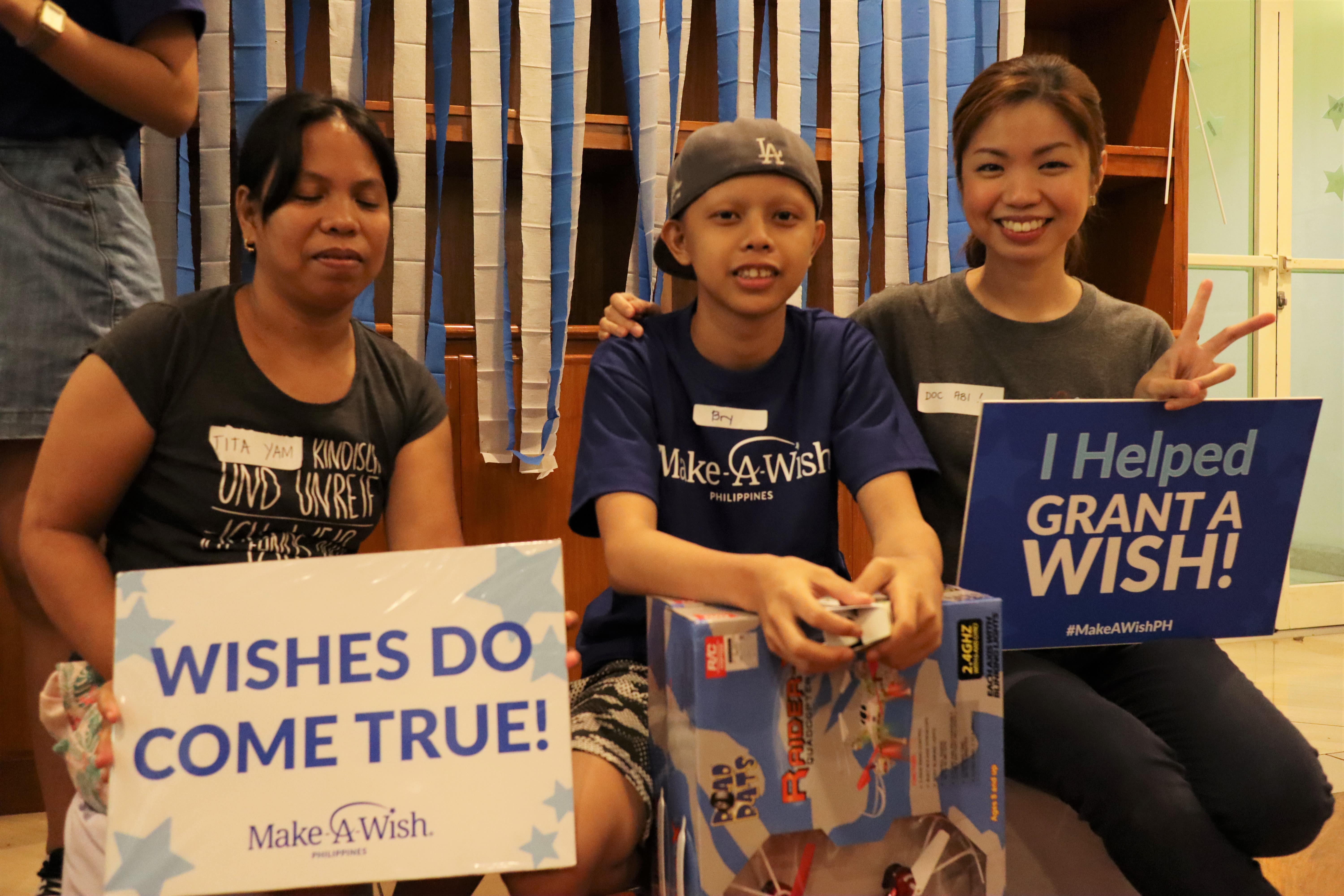“Happiness is something that adults often take for granted but for children, it really doesn’t take much for them to find reasons to be happy. They can find joy even in the smallest of things. It really means the world to them, and also to us doctors and the medical teams, that we can help grant their wishes,” shares Dr. Abi Tud, a doctor at the Philippine Orthopedic Center.
Specializing in musculoskeletal tumors, Dr. Abi works with pediatric cancer patients undergoing chemotherapy. Many of these patients are also beneficiaries of Make-A-Wish Philippines. The oncologist distinctly remembers going to a wish event to surprise them and attests to the power of a wish-come-true, remarking that wishes “really gave not just the patients but also the families genuine joy outside of just positive outcomes or updates from doctors.” As a referral partner and wish granter, she truly believes in the transformational power of a wish.
According to Dr. Abi, cancer is among the leading causes of death and disability in the Western Pacific. It is a disease that affects people across all age groups, with children being arguably the most vulnerable. The World Health Organization reported in February 2021 that over 4,700 children (aged 0 to 19) are diagnosed with cancer every year in the Philippines.
“The disease really constitutes a heavy burden especially for the families of our patients, and also loss of potential productivity. They may not have the resources for treatment because we all know that cancer is an expensive disease to treat. Especially in government institutions where I practice, a majority of our patients are indigent and their parents earn below minimum wage. All of their resources are channeled to medical costs,” says Dr. Abi.

Although she encounters cancer patients at the hospital on a day-to-day basis, Dr. Abi says that being with them at Make-A-Wish events is a different experience. As a doctor, her main focus is on each patient’s physical treatments.
However, through her experiences with the foundation, Dr. Abi has realized a crucial thing about healing children’s emotional needs, too. “Because of their very complicated and often life-threatening conditions, we can sometimes forget that pediatric cancer patients are still children. The adults around them — including us doctors and their nurses — can sometimes take for granted just how young and fragile they are because they show such psychological maturity, strength, and bravery when it comes to dealing with their illness. But we have to keep in mind that their feelings remain the same. They have the same fears, anxieties, and aspirations that all children do. And they cannot always grasp concepts like survival rates and surgical outcomes.”
“It’s often the small things that give them hope. Like for our [cancer] patients, they know that their wishes might not come true or that their parents may not be able to afford [their requests.] Receiving something that they long for — no matter how simple it may seem to us adults — can mean everything. And it can keep them going even in the worst of times and help them forget what they have to do,” the doctor reflects.
Make-A-Wish believes that hope is essential. A wish-come-true can give a child battling critical illness the hope that they need to keep going. Dr. Abi agrees, saying that it means a lot when we give each child something to hold on to. “The children are forced to give everything mentally and emotionally to fight the disease. And when they’re spent and they feel like they have nothing left, it matters that we can give them something to hang on to and give them that small bit of hope that can make miracles happen.”
“Make-A-Wish has made miracles happen for our kids,” Dra. Abi shares.
September is Childhood Cancer Awareness Month. Donate resources, volunteer your time, or refer a wish kid. Make wishes come true and give hope to children battling cancer and other critical illnesses today.

